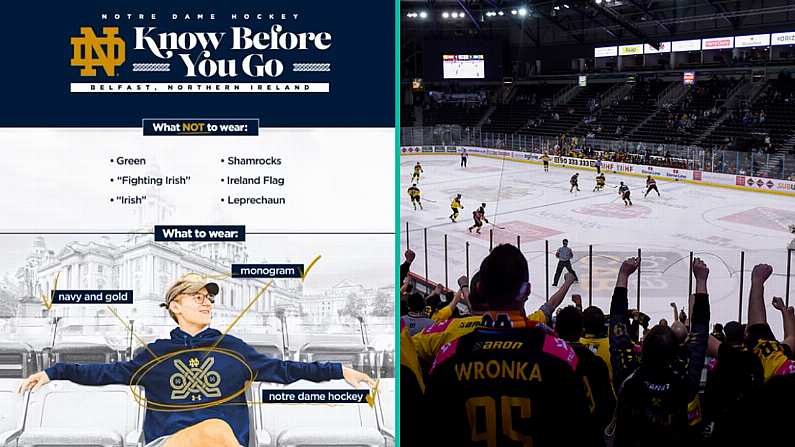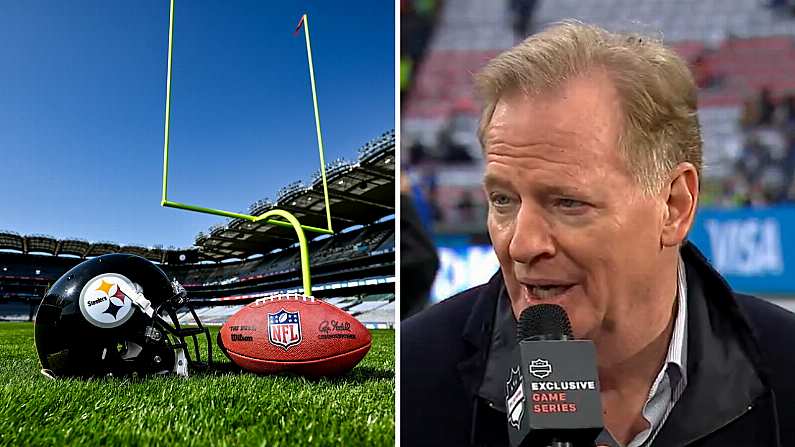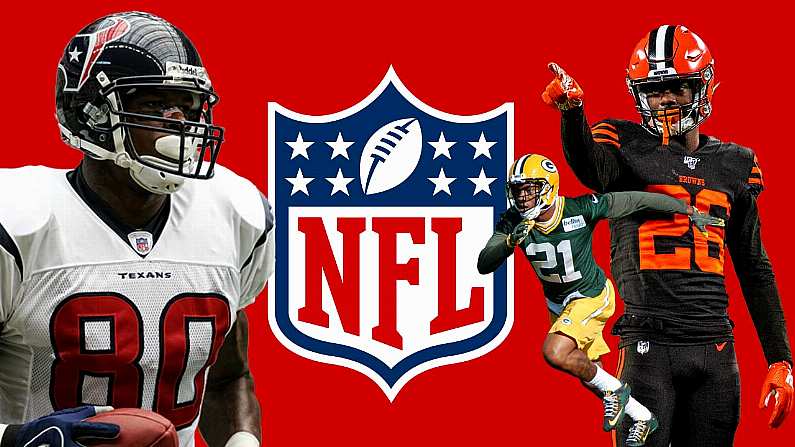The recent news that Sky's Premier League viewing figures are down by 19% is making waves on this side of the Atlantic, and when this was followed by the fact that the NFL's viewing figures are down by 15%, it was easy to make sweeping judgements that these two mega-hyped leagues were finally being found out; that fans had eventually decided that enough was enough, and decided to switch off.
But how true is this? How linked are the decline in viewing figures for both sports? And what does the future hold for both? Balls decided to take a closer look....
So what similarities are there in the drop in viewing figures in both leagues?
There are some similarities.
The main one, of course, is to do with technology and changes in the way people consume entertainment.
Do not mistake a decline in viewers for a loss of interest. The viewers are there, they are just harder to count.
It's pretty easy to follow a game on your phone as opposed to watching it on TV: if anything interesting happens, you'll catch a clip on your phone/a reputable Irish sports website.
It's the exact same in the NFL.
Ok, but is it solely to do with the fact that vines exist?
Vines? How very 2014. But no. There are other reasons, also.
TV ratings are compiled by measuring the average number of viewers at each minute of a game, so even those sitting down to explicitly view a game, only to leave it with twenty minutes to go, hurt the ratings.
Therefore, those watching only for a little while, or those half-engaged, often skew the ratings. One similar problem causing this is the issue of saturation. There's just too much on.
Sky now have Friday Night Football, to add to the games on Saturday, Sunday and Monday, plus throw in the European games on a Tuesday, Wednesday and Thursday, and you've got yourself football on every night of the week.
Does that matter?
Traditionally, the NFL believed it did.
To get a better insight to all things across the Atlantic, we spoke to Matt Futterman, senior sports writer with the Washington Post and author of Players: The Story of Sports and Money, and the Visionaries Who Fought To Create A Revolution.
He thinks that the NFL's departure from their old method of 'scarcity' has made each TV game less of an event, therefore stripping it of attentive viewership:
I think there is [too much on]. But I can't back that up with obvious data that can say that as soon as they [the NFL] went to a Thursday night everything collapsed.
The great thing about the NFL was that it was all about scarcity. That has proven very valuable to them: they had Sundays and Monday nights locked up. With the Thursday night game, there's a strange feeling to it.
You're not ready for a new week of football, it's not that essential, it's often not that great a game. The scarcity worked really well for a long time, and I don't think that getting away from that was the greatest idea in the long-run.
This is a policy the NFL have pursued in the past, as Frank Hawkins, who helped negotiate NFL TV deals, told The Ringer:
Each game was an event. Because there’s relatively little inventory, if you like football at all, you cleared your Sundays to watch it. That was the whole rationale. You had a whole week of promotional time, most of it free in the media, driving the viewership into a few concentrated windows. That’s why scarcity was such a value.
The higher the number of games, the less important it feels to watch them.
On Sky, not every Monday is Red.
Ok, but how serious is the drop in NFL And Premier League viewing figures?
With the NFL, Futterman feels the decline in ratings has been slightly overstated. He believes that, while the NFL ratings are down, they drop is due more to the fact that fewer people are watching traditional, scheduled programming:
Maybe, it's become a bit easier to follow the NFL without watching it, but I think the ratings are down across the board for prime time, the evening games, and that's no different to any other prime time programme, so I don't know whether the NFL is any different to any other prime-time programme in that way.
NFL is also in a weird spot right now. It's kind of between generations: one generations of stars is retired or older, with the next generation and the next series of rivalries, haven't made themselves clear yet. You didn't enter this season with a lot of obvious storylines for the casual fan to relate to.
By the time we get to December, I expect those ratings to be back up. I don't buy the idea that people aren't watching football because they're obsessed with the election. I'm all for blaming everything on Donald Trump, but I don't think he can take responsibility for that.
Meanwhile, Sky said last week that they were unconcerned by the fall in Premier League viewing figures, and that they expected them to pick up as the season goes on.
They are correct in assuming people are interested in their product. The thirst for the Premier League is at an all-time high: it's why you saw a hundred different websites court your clicks through a 'do you agree with our combined Liverpool/Man United XI' link on Monday afternoon.
So if viewership isn't really a problem, then why am I posing questions to myself for this article?
Good question.
The issue is going to be whether people are watching, but how people are watching. The rise of Netflix, along with streaming and on-demand services means that people are getting used to watching whatever they want whenever they want, and this is going to impact the sports industry.
Futterman believes that, in the States, the era of pay television is ending, and it will have serious repercussions for the sports industry.
People aren't buying TV packages any more, that's not the way younger people are consuming entertainment any more.
There are a lot of sports in the U.S., most of them in fact, you need pay television to watch them. The collapse comes in two ways: if these people are deciding to live without Pay TV , they're deciding to live without sport.
They can do that because there are so many entertainment options out there. The sports business, notably the U.S. leagues really haven't figured an alternative. They are tied into these long-term contracts in which their partners require you to authenticate yourself if you wish to watch their videocasts.
If I don't have a pay TV subscription, I can't authenticate myself. Twenty years ago this might have created a lot of boring nights for me, but now, in the days of Netflix, Hulu and a thousand other options, these people are just deciding to live without it. And if you live without it, then they're not going to be fans, they're not going to buy tickets, they're not going to develop that affinity, they're just not going to be fans. That's the longer-term problem.
The shorter-term problem is that these pay TV contracts are going up in smoke now, they're not worth nearly as much as they were when they were signed.
The ultimate destination, here, is that sports will ultimately only be worth what people are willing to pay for them. While this may affect the NFL in some form, the repercussions on smaller sports will be even bigger. Whereas an American sports fan will pay a subscription to ESPN mainly to watch Monday Night Football, he/she is also subsidising the other sports ESPN have deals with, including MLB, NHL and NBA.
The NFL will likely be fine as, because they have stayed largely on network television, the money the broadcasters are paying for the product is reflective of the audience that is there.
With other American sports, however, trouble is brewing. Pay TV subscriptions have created a bubble: the people paying for MLB, NBA, NHL are not necessarily fans of those sports (fewer than 3% of Americans watch their local basketball team regularly, while under 2% tune into their local NHL side): they may be football fans willing to pay for everything in order not to miss a football game.
It's entirely plausible that pay TV broadcasters have paid more for these sports than they are worth. There is also an issue with advertising: those continuing to pay subscriptions are, in all likelihood, older people, which is traditionally a smaller advertising market.
So, as fans begin to cancel their subscription fees, broadcasters will have to find a new method of selling these sports to their audience in order to stay afloat.
What are those new methods of selling going to be?
Futterman isn't fully sure.
I do think we are moving towards an a la carte world where you sort of pick and choose what you want. The cable industry have very strong lobbyists in Washington, and they've fought very hard over the past 20 years not to have law makers order them to start selling their channels individually, but I think the market is heading in that direction.
For a long time, if you had to buy it all, or get nothing, most people decided to buy it all. Now, people are willing to buy nothing, as at least they have a way of getting something if they buy nothing, as they have a way of doing it. It's changing already. ESPN has a prodcut you can buy, HBO too: you don't need a cable subscription, you can pay them, but they have to get better at them, and sell more of them.
They'll have to work out a situation in which you can buy some of it if you want, but make it more economically viable to buy all of it. I guess that's probably where they'll get to.
No one has solved it, in sports or entertainment [has worked it out]. It's the 50 billion dollar question, and no one has come up with it yet.
ESPN's subscriber figures have fallen through the floor: they've lost ten million subscribers since 2013, and this article on fortune.com estimates that they've lost a billion dollars in revenue between 2013 and 2015. In response, they've launched a streaming service, and they now plan to roll out a streaming service that bypasses the need to pay a satellite subscription, although they don't plan to allow access to the full slate of rights ESPN hold.
So how does this affect Sky and the Premier League?
At the moment, Sky's subscription figures seem to be holding steady, estimated at somewhere between five and six million. This is a testament to the enduring popularity of the Premier League, despite what the viewing figures will say above. Sky's challenge will be to hold onto subscribers.
Given the example of the States, and the general trend regarding ways of consuming entertainment, one would predict that subscriber numbers are only going to go down over the next few years.
The issue is less the Premier League and more the sports it helps prop up. Rugby's Champions Cup has recently undergone a revamp to make it as profitable for pay TV as possible, but the problem is, the audience here may be overstated relative to the television deals struck: much of it is based on the casual sports fan who is willing to pay for it in order to watch the Premier League. These packages have been negotiated based on what fans are willing to pay for other sports, which is a pretty risky strategy.
Just 9,000 people watched Sky's coverage of the All-Ireland football final replay for example, which cannot reflect good value for what they paid for the rights, unless the GAA have given it to them for free.
As the age of satellite subscriptions end, it is not the NFL or the Premier League that will ultimately suffer. It's going to be the little boys.
A man once said that computers were useless as they gave only answers. Broadcasters and sports leagues would disagree; they are facing some tough questions right about now.
Matt Futterman is the author of Players: The Story of Sports and Money, and the Visionaries Who Fought To Create A Revolution, and is on twitter.












